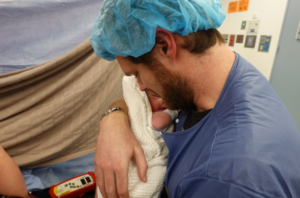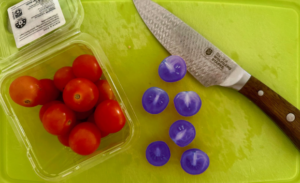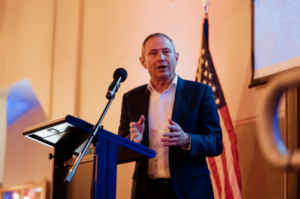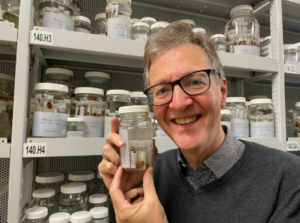Some of WA’s brightest young thinkers, innovators, entrepreneurs, campaigners and change-makers came together at TEDx Kings Park Youth this month. Among them was youth mental health researcher Rigel Paciente.
Their work at The Kids Research Institute of Australia focuses on youth mental health and childhood trauma, helping young people across WA work through trauma and develop resilience.
A SUPPORTIVE COMMUNITY
Mental health within the LGBTQA+ community has been a focus of Rigel’s work throughout their Master of Public Health studies.
Their masters dissertation explored the perspectives of LGBTQA+ young people in Australia on existing suicide prevention services. This was followed by a practicum in further research looking at LGBTQA+ content on TikTok to gauge how the community used the platform.
“I was looking at how LGBTQA+ people used TikTok and what sort of content they see. Overall, it was very, very positive”, says Rigel.
“There was a pseudo community forming on TikTok, and the culture is actually very rich and supportive.”
FEELING SEEN AND HEARD
Public debate about the negative impact of social media on youth mental health is nothing new. But Rigel’s research shows social media can provide a positive, supporting community for those feeling ostracized.
“One of the biggest contributors to suicidality or adverse mental health outcomes is feeling alone or perceiving yourself as being a burden to other people”, says Rigel.
“For an adolescent who might be geographically or socially isolated, someone on your phone telling you that the way that you feel is valid, that you shouldn’t be experiencing social adversities just because of your identity, that is a very powerful thing.”
LIVED EXPERIENCE
Rigel’s interest in this area is more than just academic. Their personal experience with the adversities young people in the LGBTQA+ community face helped them understand the value of support.
“Growing up being somewhat isolated and not having anyone to chat to about the way one identifies or the rich culture behind the LGBTQA+ community, I would have really benefited from things like TikTok when I was younger”, says Rigel.
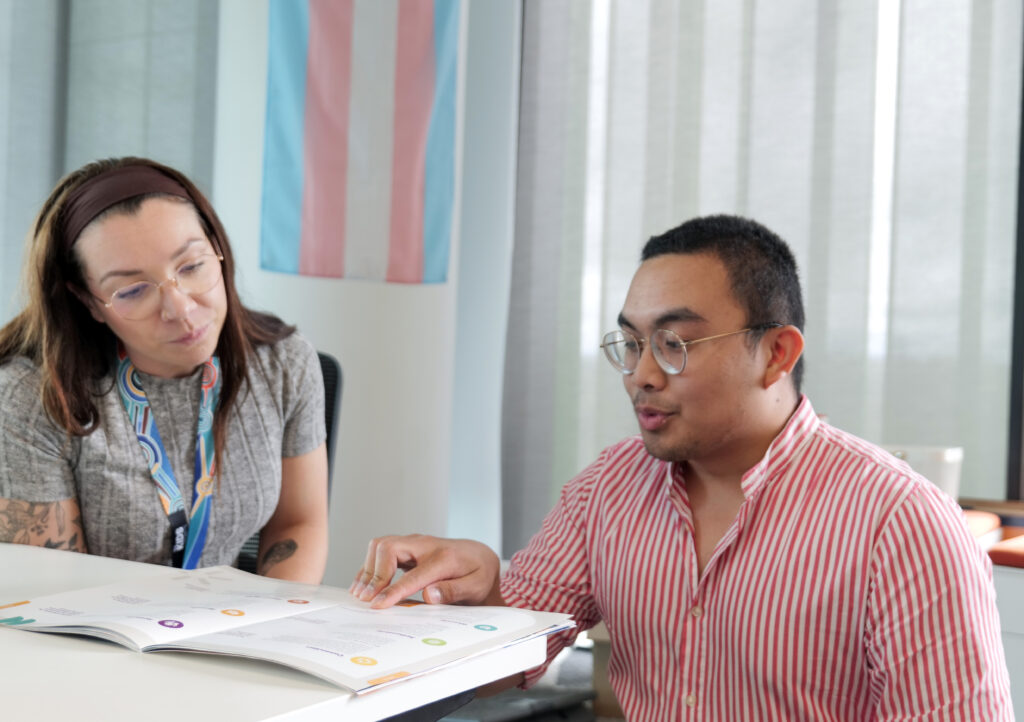
This personal relationship with the challenges of LGBTQA+ people is what led Rigel to initially study public health. But once they had entered that space, there was no looking back.
“My lived experience really drove that initial yearning to go into the Master of Public Health. But as soon as I stepped foot in the [Kids Research] Institute, I thought ‘these are my people’”, says Rigel.
“They were so passionate about what they were doing, interested in the topic of mental health, and so caring as well.”
ONLINE LITERACY IS KEY
The Australian government’s proposed social media ban on children under 16 was tabled in Parliament this month.
It aims to protect children from the harms of social media, including X, TikTok, Facebook and Instagram.
However, Rigel’s research highlights the positive impact social media can have.
Like many opposed to the ban, Rigel believes restricting access is a futile gesture and poor attempt to curb social media’s detrimental effects.
Instead, they advocate for increasing online literacy.
“The conversation needs to be about engaging young people regarding how they’re using social media”, says Rigel.
“It needs to be more about literacy.”
“Young people need to be able to discern what information is actually helpful, and whether the community that they have access to online is one that is detrimental to their own mental health.”
“LET’S FIX IT”
Rigel is about to start a PhD at UWA. It will focus on the circumstances contributing to suicidality and self-harm in young people with type one diabetes.
While it may seem like a pivot from their previous work, Rigel’s underlying motivation remains the same.
They seek out groups who are overlooked in the mental health area and provide health care systems with more knowledge.
“It all boils down to, ‘where are the key gaps that other people aren’t necessarily tackling at the minute?’”, says Rigel.
“At the moment, there is no systematic process to screen for feelings of suicidal thoughts or behaviours in people with type one diabetes.”
“The mindset that I operate from is ‘if there’s something to fix, let’s fix it’.”
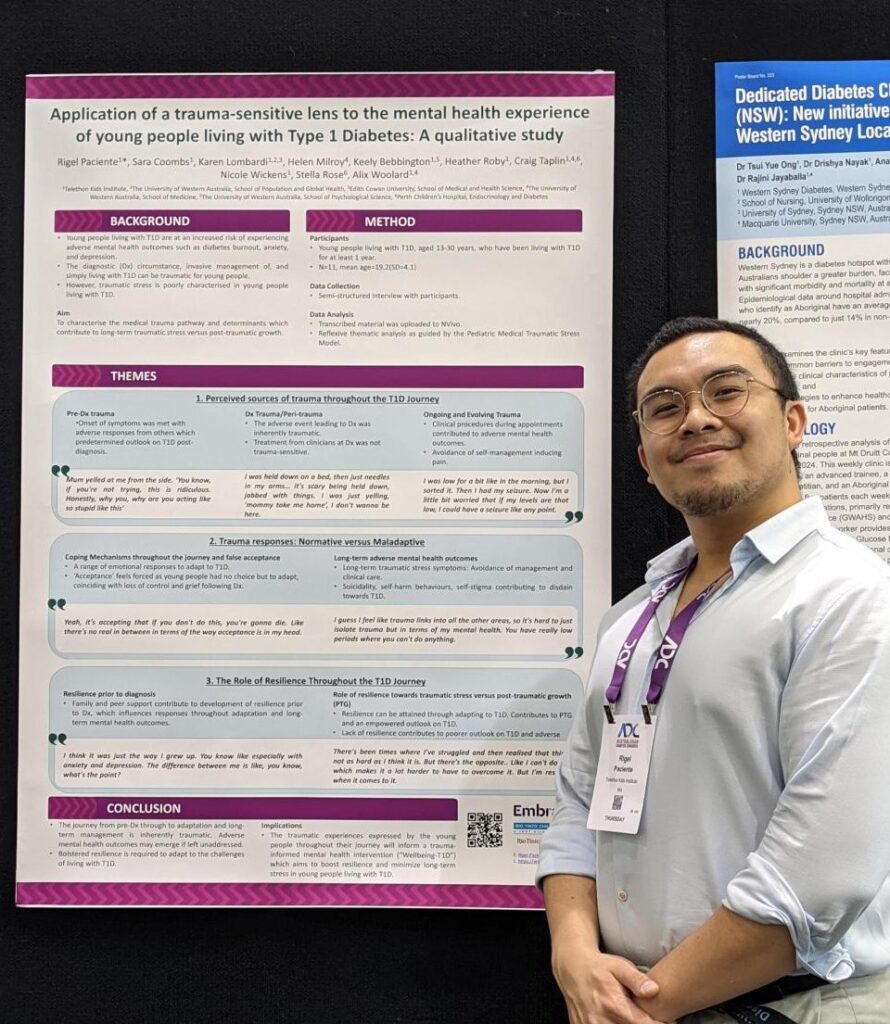
Credit: The Kids Research Institute Australia, Jack Boronovskis from the Embrace team
The factors impacting the mental health of young people with type one diabetes aren’t well researched or understood.
Ultimately, Rigel’s research is underpinned by a motivation to rebuild systems to better support those in need.
“Research is more than just the papers that you publish,” says Rigel.
“I wanted young people to feel empowered about the different choices that they could make.”
“It’s about how you can change the way things currently are through advocacy, or policy. I think that’s what keeps me going.”




